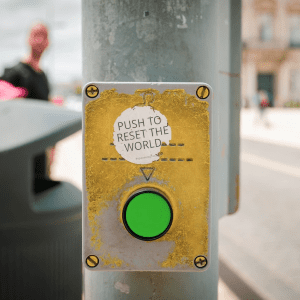 Sports managers and organisers of large events again found themselves in a difficult situation, with the decision to reopen against the recommendations of some health experts. They had to pivot to new ways of holding matches and games safely, or else risk the lives of staff, athletes and fans.
Sports managers and organisers of large events again found themselves in a difficult situation, with the decision to reopen against the recommendations of some health experts. They had to pivot to new ways of holding matches and games safely, or else risk the lives of staff, athletes and fans.
With the world’s largest sports events of 2021 now behind us, we can take a look at how successful managers were when dealing with the challenges COVID-19 created. In the previous post, I examined The Olympics. Here, I discuss the UEFA Euro and Wimbledon in 2020 and 2021.
UEFA Euro 2020
The Union of European Football Associations (UEFA) European Football Championship, commonly known as the UEFA Euro 2020, or simply Euro 2020, is held every four years across stadiums all over Europe. Cancelled in 2020 due to COVID-19, organisers went through a monumental process of negotiation with host cities and countries in order to deliver the event in 2021, despite coronavirus restrictions still being in place in some host countries.
In terms of coronavirus management, the UEFA Euro 2020 got off to a rocky start.
Before anyone had even kicked a ball, host countries and the UEFA had a number of controversial disputes over coronavirus mandates, crowd sizes and quarantine restrictions for athletes and officials, all in the midst of rising coronavirus variants in Europe. The UEFA was even accused of pressuring governments to ease restrictions.
The Euro 2020 kicked off on June 11, 2021, and all matches across the 11 host cities including the finals were finished by July 11. An extensive amount of coronavirus restrictions and monitoring systems were put in place depending on the host country, including:
- A World Health Organisation (WHO) Europe digital tracking system was set up to monitor COVID-19 outbreaks in host cities.
- Masks, testing and social distancing restrictions were in place at venues.
- Quarantine restrictions and ‘athlete bubbles’ were in place, in an attempt to contain the virus from spreading across borders.
- Reduced capacity in some stadiums: crowd sizes have ranged from completely full, such as 60,000 in Budapest, to 25-45% capacity in other venues where there have often been around 10-15,000 spectators
The UEFA also had to design a new set of COVID-19 special matchday rules, in case athletes tested positive for the coronavirus just before matches. Plus, squads were extended from 23 players to 26, in case any players were disqualified due to COVID.
Euro 2020 COVID impact
Although soccer fans may disagree, many argue that hosting the Euro 2020 in 2021 involved too many spectators across too many countries. Although the Delta variant was beginning to surge in Europe in June, organisers went ahead with large numbers of spectators in stadiums, as planned.
In July, the WHO said the mixing of crowds, travel and easing of social restrictions had driven up the number of new cases by 10% in Euro 2020 host cities.
Several Euro 2020 matches became super-spreader events, with over 2000 new cases in Scotland directly linked to Euro 2020 matches and viewing events around the UK. Evidence shows that infected persons attended Euro 2020 events and contributed to the spread of the Delta variant, despite stadiums requiring negative tests from within the previous 48 hours.
The German Interior Minister, Horst Seehofer, called UEFA’s decision to host 42,000 fans at the June 29 Germany-England match “absolutely irresponsible,” adding: “I have the suspicion this is about commerce again.” On the whole, the UEFA has been roundly criticised for mismanagement of their coronavirus restrictions, and for putting profits before the safety of participants.
Wimbledon
When the famous Wimbledon tennis tournament was cancelled in 2020 for the first time since the Second World War due to COVID-19, event organisers were able to recoup US$141 million in losses, thanks to insurance. In 2021, however, insurers were no longer going to payout for an additional cancellation. So, the postponed competition, as far as organisers were concerned, simply had to go on.
Luckily for organisers, fans and athletes, the UK Government found a novel solution to justify holding large events during a pandemic: they turned it into scientific research.
The UK Government gave permission to Wimbledon to go ahead, as long as they agreed to use the event as a testing-ground for the first ever large-scale study of the most effective ways to contain the virus in big event settings. The Government Events Research Program is a multiple phase investigation of large events in the UK, where researchers work with organisers to collect data on behaviour, movement, ventilation and testing.
Wimbledon became more than a sports event: it became a case study for phase three of research, with organisers implementing and monitoring COVID containment measures such as:
- Reduced capacity audience: 50% capacity for regular tournaments, however the finals were allowed 100% capacity.
- Audiences and staff had to observe mask wearing, hygiene and social distancing rules.
- Attendees had to show proof of vaccination or immunity, or a negative corona test from the previous few days.
- Instead of renting private homes in Wimbledon Village, the athletes and their entourages had to stay at a designated and monitored hotel in London as part of what the tournament called a “minimized risk environment.”
- Athletes and staff were subject to regular coronavirus testing and a track-and-trace program.
Wimbledon COVID-19 impact
The 134th Wimbledon Tournament took place from 28th June to the 11th of July this year, and was generally lauded as a success. So far, there has been no reporting of any major outbreak or growth in COVID-19 cases linked to the event. However, the rate of participant testing and feedback after the event was reportedly quite low.
Results from the first-phase Government Events Research Program report (which does not include the Wimbledon study) have shown that “with mitigating factors, such as social distancing at pinch points, face coverings and staggered entry and exit times, events can be conducted more safely at increased capacities while maintaining a low risk of transmission.”
It is unclear when the third-phase report containing information on the Wimbledon study will be released.
Wimbledon also shows us how insurance companies have played a big role in shaping the decisions of event organisers during COVID. If organisers have flexible insurance they are able to postpone events: conversely, if they are unable to recoup costs, it’s more likely that they will go ahead with events despite potential dangers.
Torrens University Events Management students research venues and large sporting events, including their use for international competitions. They learn the influence event organisers have over the safe delivery of significant events across the globe and how to manage issues in a crisis.
Written by Andrea Walters
Lecturer, Event Management at Torrens University




















